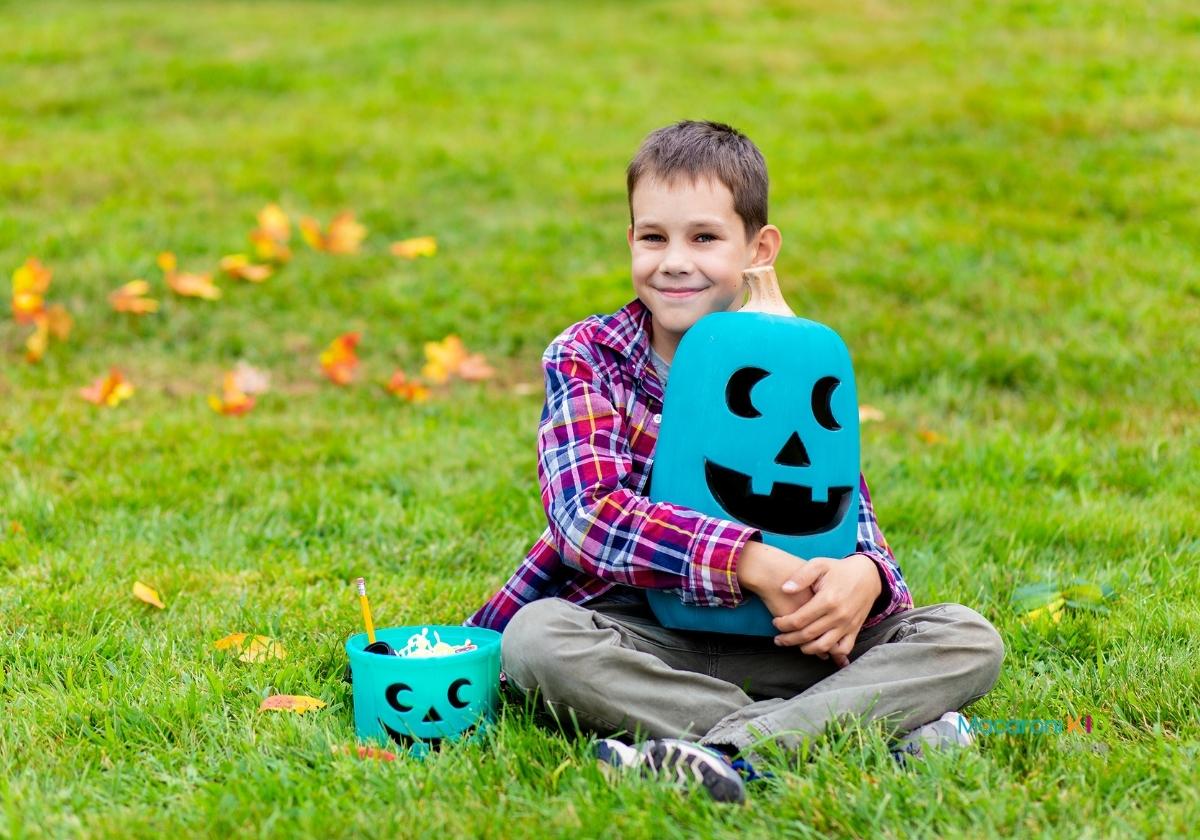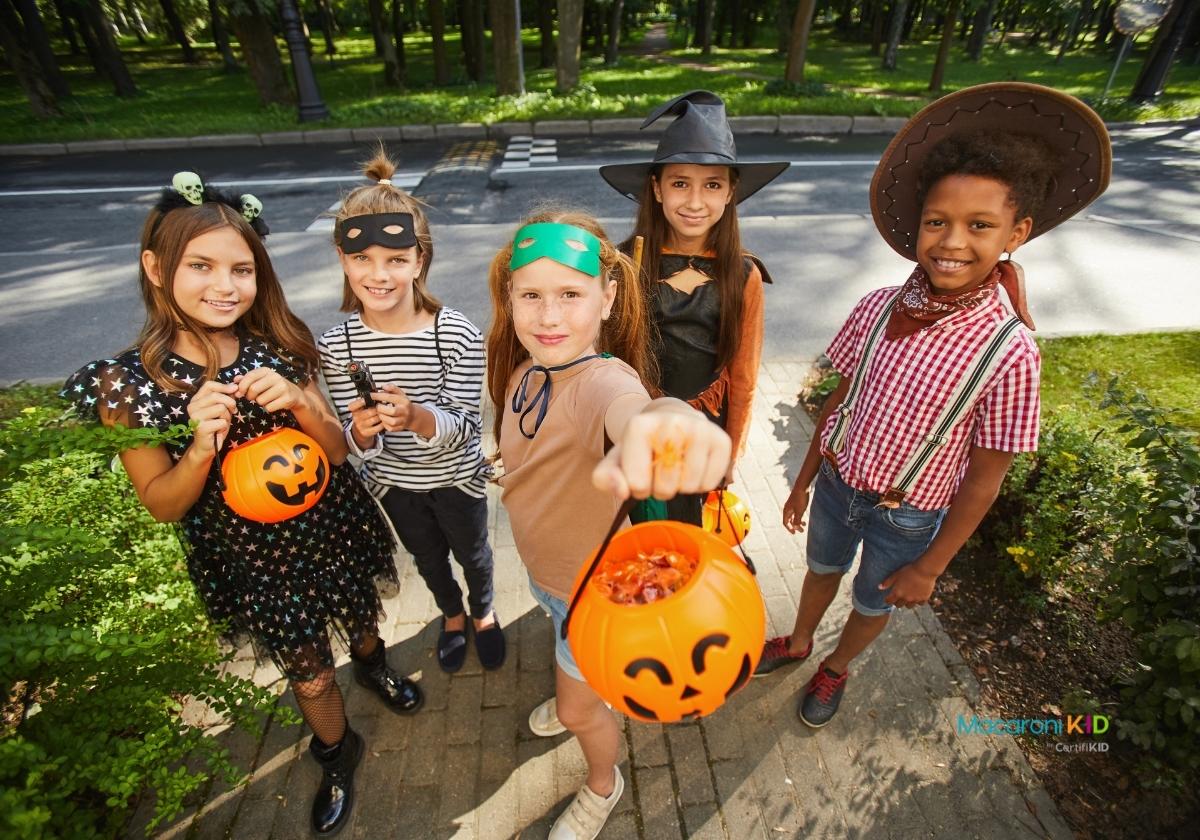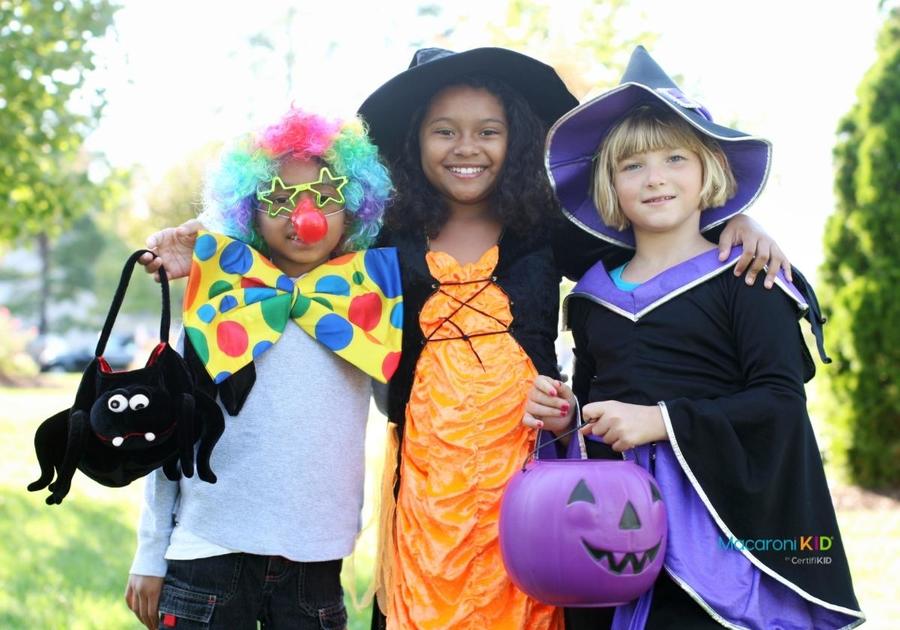Kids all over the country are picking out their costumes. They are dreaming about what awaits them this Halloween when they come home from trick or treating to dump out their pail and discover all the treats!
Unfortunately, there are many kids out there who empty their candy bags to find only things they can not eat. Or who started to go out trick or treating and had to return home early due to various reasons. Or kids who couldn't go out at all.
So what are some ways to make sure all children feel included? Here are our top 10 tips to ensure all children feel welcome this Halloween.
1. Participate in the Teal Pumpkin Project
By placing a teal pumpkin by your door step, you signal to families that you are offering alternatives to candy, helping the 1 in 13 children living with food allergies or other intolerances and conditions enjoy Halloween. This doesn't mean you have to ditch the candy all together, but offering a separate bowl of non-food items for kids can make all the difference. Need some ideas? Try bubbles, rings, make and take crafts, pencils, bracelets, glow sticks, or stickers!
 EvgeniiAnd via Canva |
2. Set Up a "Just in Case" Station
You don't have to prepare for every emergency that may happen while others are trick or treating, but if you have extra band aids, diapers, wipes, water bottles, or even extra bags out, you may prevent a family from having to go home early and miss out on trick or treating.
3. Understand if a Child is Not Wearing a Costume
There are numerous reasons why a child might not be in costume, from sensory issues to their family not being able to afford one or simply not having the time to go pick one out. Avoid bringing attention to a child's lack of costume, and possibly making them feel bad by allowing them to participate how they can.
4. Don't Expect a Thank You or a "Trick or Treat"
It's not always easy to tell what a child's capabilities are from looking at them. Forcing a child to say these things might make children with anxiety or those who are non-verbal uncomfortable or stressed.
 AnnaStills via Canva |
5. Provide a Clear Path to Where You are Handing Out Candy
As a former mail carrier, I tend to be over vigilant when looking for slip, trip, and fall hazards. However, excited kids most likely won't think twice. You don't want your house to be the reason a kid gets hurt or has to go home early. On the other side of this, keep in mind that a lot of kids might require the use of a wagon, stroller, or wheelchair. Try to find a place to pass out candy or leave a candy bowl that doesn't require kids to go up stairs.
6. Let Kids Be Kids, As Long As They Can Be!
Kids only get to be kids for so long. If a child looks "too old" to be trick or treating, remember that we know very little about anyone from a short interaction such as trick or treating and allowing them to participate causes no real harm. However, we never know the hurt we might cause from not including someone.
7. Keep Your Pets Inside
As pet owners, we want to show off our adorable furry family members as much as we can! Unfortunately, you never know how your pet may respond in every situation, or how a child may respond to seeing a pet. A stress response from either a child or pet may end in catastrophe. Keeping your pets in a safe location during the hours of trick or treating is the best way to avoid any unexpected situations.
 Damedeeso via Canva |
8. Avoid Strobe Lights, Fog Machines, Motion Sensor Decorations, and Loud Music
Studies show that on average, 1 in 6 children have sensory issues and could possibly find these items over stimulating. Additionally, children with asthma might react to the particles in the air from a fog machine. What might seem harmless to some might cause a child to become over stimulated, have a meltdown, or other reaction, leading to a not-so-fun early night.
9. Participate in Reverse Trick or Treating
Have extra candy that wasn't handed out? Did your own children come home with too much candy? Drop off candy to other kids who may not have had the opportunity to go Trick or Treating! (Be sure to check to see if the child has any dietary restrictions!)
10. Be Patient and Understanding
At the end of the day we know very little about the children at the receiving end of trick or treating. Being inclusive starts with being understanding, even in situations we don't readily understand. At the end of the day, the most important part of trick or treating is making sure every child goes home safe and feeling included.
It might not always be possible to be inclusive to every child every time, but just doing one or two of the items off this list might make one child's whole Halloween just a little bit more special!



